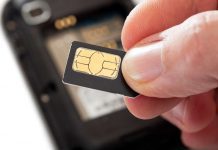You wouldn’t go out in public naked, so why would you leave your data bare? If you’re like the vast majority of internet users, you probably don’t see the necessity to encrypt your online data. You are not, after all, Edward Snowden or Chelsea Manning. You are not a government target, and your search history is no different from anybody else’s. Encryption is a critical step in safeguarding your wireless network. The unprotected internet is one of the most serious concerns of our day. As a result, understanding how to encrypt an internet connection is critical.
When you use the internet, your online tracking isn’t limited to you. Internet scammers and third-party groups are monitoring your online activities. Your Internet actions are constantly watched by those who are looking to increase their earnings. As a result, it would be strange and hazardous not to have some protection when using the internet for anything.
What Is Encryption?
Encryption is a technique that encodes your data so that specific persons can only read it. Consider encryption to be the process of making anything unreadable. Even if the simple text is available for anybody to read, it will make no sense. It is what encryption is. In more technical terms, encryption scrambles data transmitted or received over the internet using cryptography in such a manner that it becomes inaccessible to anybody other than the intended recipient. The contents of a communication will scramble by end-to-end encryption. They will only unscramble when it reaches its intended destination.
Why Is There A Need For Encryption?
The internet is not a secure platform so that it might be accessible to anybody. Given the current state of online privacy and security, there are several reasons why you should learn how to encrypt an internet connection:
- The unencrypted connections can be eavesdropped on and intercepted by hackers. They can either steal important information such as credit card numbers, passwords, or your social website, etc. or lead you to phishing websites this way.
- If your data is not encrypted, it is open to spying. It may be accessible by anybody, including your Internet Service Provider (ISP), governmental agencies, and cybercriminals. Government authorities may be interested in your Internet activities and whether or not you visit any banned websites.
- If you use unencrypted connections, you’re unintentionally agreeing to your ISP selling your browsing data to advertising.
So to maintain privacy, your internet traffic must be secured using at least some form of data encryption.
How To Encrypt An Internet Connection?
Encryption is found everywhere around us. Everything is encrypted, from bank account numbers to passwords, so why not learn how to encrypt an internet connection as well?. Encryption is not as difficult a concept as it may appear. As a result, if you want to learn how to encrypt your internet connection, start applying some of the methods listed below.
Secure Your WIFI
If there is one location where we should all feel safe, it is our own house or place of business. There is no one observing your online activity and attempting to steal your personal information behind your back. Right? Well, it depends on whether or not you have set a password for your internet connection.
However will not, of course, prevent ISPs or the government from monitoring. Still, it will serve as a deterrent to hackers. To begin, create a password for your WiFi. Make sure you only connect to the most reliable networks. To prevent hackers from intercepting your traffic, avoid touching your device to open networks.
HTTPS Everywhere
When you visit a secure website, the URL in the address bar begins with “https://.” While some websites offer HTTPS protection for login pages or the checkout process, a well-designed website will give HTTPS protection throughout. HTTPS, or Hypertext Transit Protocol Secure, is an Internet protocol that provides secure data transfer between web browsers and websites.
It employs TLS encryption techniques, authenticates both communication parties, and verifies that the transmitted data has not to snoop off anywhere. HTTPS Everywhere is an Opera, Chrome, and Firefox browser plugin that automatically redirects all HTTP links to HTTPS pages if they are accessible.
VPN service
Using a VPN service to encrypt your Internet connection is your best chance. It encrypts your internet traffic and routes it through a secure distant VPN service. It makes it difficult for spies to monitor your online activity or steal sensitive information. For both corporate and personal usage, these VPN services are straightforward to set up.
Your IP address gets hidden behind a virtual private network. Your IP address is altered to a different location when you connect to a VPN server. No one can identify you since your digital trail and position are encrypted.
End-To-End Encryption Messages
End-to-end encryption gets used by several messaging apps (E2EE). It encrypts your message from sender to receiver, preventing other parties from eavesdropping on it.
To access encrypted messages and their attachments, both the sender and the recipient must have public and private keys, which allow them to interpret the message without difficulty. Fortunately, most of today’s messaging applications are now encrypted, which protects your data.
Tor Browser
Tor stands for “The Onion Router.” It allows you to access the web anonymously. It encrypts your communication three times across three distinct decentralized nodes. Every node gets handled by an independent volunteer who removes just one layer of encryption, preventing anyone from seeing the entire communication.
Tor picks three anonymous servers when you start a new browser session, encrypts all HTTP traffic, and reroutes it through those servers. A Tor user’s connection is bounced around the Tor Network’s relay, obscuring the user’s precise location.
Final Thought
In a word, with global technology developments and increased usage of internet communication and data transfer, encryption is more vital than ever.
To avoid eavesdropping from government surveillance agencies and hackers, users must encrypt their internet communications. As previously said, encrypting internet data is simple and requires minimal effort. Furthermore, many technologies available for this purpose, such as the Tor browser and encrypted messaging applications, are free to use.
More on Deepmartinfo.com: How to get a job at Google? Read here.


![How To Import Bookmarks To Firefox [Easy Way] How To Import Bookmarks To Firefox](https://deepmartinfo.com/wp-content/uploads/2021/12/What-Does-Weak-Security-Mean-On-WiFi-3-218x150.png)
![How To Exclude Words From Google Search [TUTORIAL] How To Exclude Words From Google Search [TUTORIAL]](https://deepmartinfo.com/wp-content/uploads/2021/09/How-To-Exclude-Words-From-Google-Search-TUTORIAL-218x150.png)





![How To Change DHCP Lease Time Windows 10 [2022 Guide] How To Change DHCP Lease Time Windows 10](https://deepmartinfo.com/wp-content/uploads/2021/10/How-To-Get-Slime-Out-of-Hair-2-218x150.png)
![Are Total Wireless Phones Unlocked? [Detailed Guide] Are Total Wireless Phones Unlocked](https://deepmartinfo.com/wp-content/uploads/2022/11/Are-Total-Wireless-Phones-Unlocked-218x150.jpg)
![How to Cancel AMC Plus? [On Android / iPhone/ Many More] How to Cancel AMC Plus?](https://deepmartinfo.com/wp-content/uploads/2022/10/Do-Shelties-Bark-a-Lot-8-218x150.jpg)
![How To Duplicate Apps On iPhone? [Complete Guide] How To Duplicate Apps On iPhone?](https://deepmartinfo.com/wp-content/uploads/2022/10/How-To-Duplicate-Apps-On-iPhone--218x150.jpg)





![How To Talk Over a Sound on Tiktok Without Voiceover? [Guide] how to talk over a sound on tiktok without voiceover](https://deepmartinfo.com/wp-content/uploads/2022/12/how-to-talk-over-a-sound-on-tiktok-without-voiceover-218x150.jpg)

![How to Make Kodi Not Full Screen? [Easy Ways] how to make kodi not full screen](https://deepmartinfo.com/wp-content/uploads/2022/11/how-to-make-kodi-not-full-screen-218x150.jpg)








![How to Fix Facebook Dating Not Showing Up [SOLVED 2022] facebook dating not showing up](https://deepmartinfo.com/wp-content/uploads/2021/09/hands-1167617_1280-100x70.jpg)

